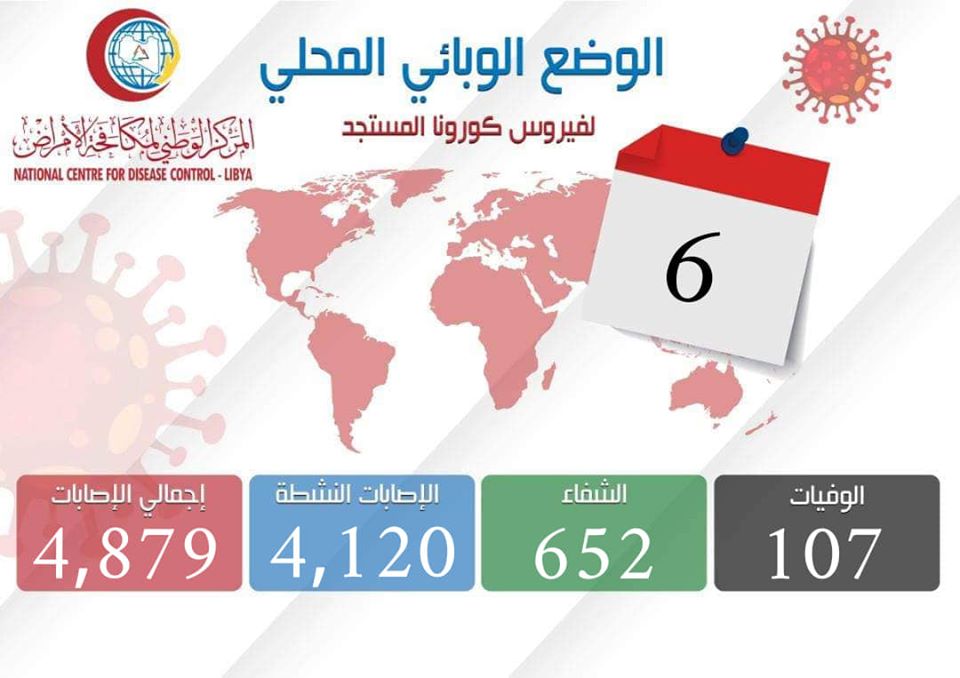Libya on Friday reported 404 new COVID-19 confirmed cases raising the country’s total to 4,879, according to figures from the nation’s National Center for Disease Control (NCDC).
NCDC also confirmed the recovery of 12 patients, raising the number of recoveries to 652.
The death toll of Covid-19 has risen to 107 after the registration of 8 deaths.
The National Center for Disease Control said the new positive cases are distributed as following:
- Tripoli: 184 cases
- Nawahi Arba’a: 7 cases
- Maya: 2 cases
- Khoms: 16 cases
- Misrata: 102 cases
- Sabratha: 10 cases
- Tarhuna: 11 cases
- Janzur: 6 cases
- Bani Walid: 11 cases
- Zliten: 17 cases
- Sabha: 2 cases
- Shawerif: 1 case
- Tobruk: 2 cases
- Benghazi: 4 cases
- Bani Walid: 11 cases
- Amriya: 1 case
- Sidi Sayah: 2 cases
- Msallata: 1 case
- Zuwara: 3 cases
Libya had managed to tame the spread of the virus early on but July saw a period in which the virus spread rapidly.
The recent increase in the number of coronavirus cases prompted the United Nations-backed government to impose strict measures to contain the spread of the virus.
The government closed the country’s borders and extended a nighttime curfew by a further 10 days. The government also made it compulsory to wear face masks in public and ordered all schools and places of worship to be closed. Moreover, mass public gatherings were banned as part of the measures.
According to the NCDC, Tripoli, the port of Misrata, and in the southern desert town of Sebha are the focal points of the pandemic in Libya.
Libya’s health system has been devastated following years of instability and war which have fragmented the state, destroyed infrastructure and left many people living in crowded conditions after fleeing their homes.
Libya’s COVID-19 response has been further complicated by a shrinking space for international aid agencies to offer assistance due to the ongoing conflict and restrictions of movement arising from the pandemic.
The international humanitarian organization Médecins Sans Frontières (MSF) said the current situation in Libya “could ultimately become a humanitarian catastrophe.”





